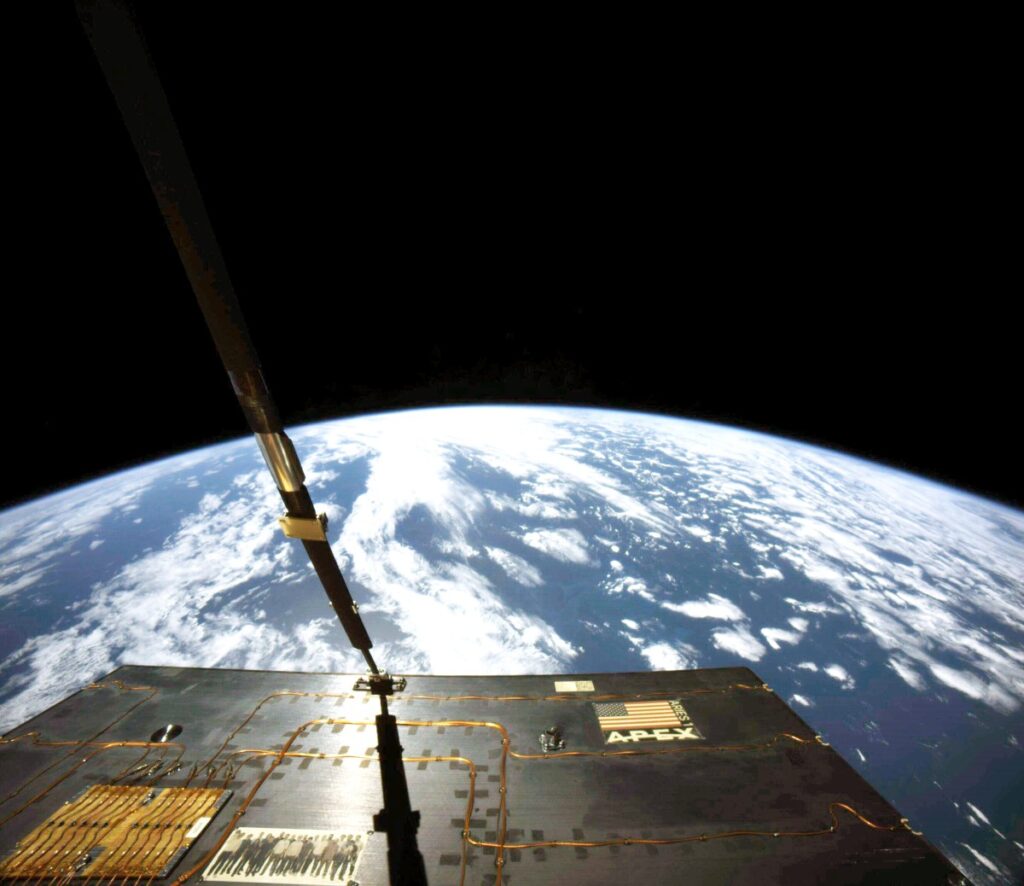Satellite manufacturer Apex has raised $95 million in new capital to expand its operations following the success of its first mission.
The Los Angeles-based startup successfully launched and operated its first spacecraft, Aries, in March. The mission appeared to go without any issues, a rarity in the space industry, and with its flight track record under its belt, the company is firmly focused on growth.
This includes expanding production of the Aries rocket and investing in the development and production of Nova, a spacecraft that is roughly twice as massive as Aries. Ian Cinnamon, CEO and co-founder of Apex, told TechCrunch that the company plans to build five Aries this year alone.
Apex was founded on the hypothesis that one of the main bottlenecks preventing the growth of the space industry is the manufacturing of satellite buses. Cinnamon and co-founder Maximillian Benassi aim to essentially productize (i.e. manufacture and sell in a standard format) satellite buses, which traditionally required bespoke engineering processes and lengthy lead times, allowing companies to rapidly scale their capacity to send payloads into orbit.
The same innovations that increased demand for access to space—namely, the falling launch costs brought about by SpaceX's Falcon 9 ride-sharing missions—also created the conditions for commercialized spacecraft to win in the market: Up to a certain volume, customers pay the same price for a ride to orbit, so Cinnamon and Benassi realized they could standardize and slightly over-engineer their spacecraft without adding extra launch costs to customers.
Cinnamon says that this focus on product has given the business a strong foundation. “For every satellite bus that we've sold or are selling, we can clearly explain what our selling price is, what our unit economics are, what our margins are,” he says. “We're also very clear with our customers that we're not trying to be the cheapest on the market. In some cases, we can charge a premium to get a very quick delivery time.”
The clear economic picture was undoubtedly attractive to investors: Despite all the buzz around hard tech these days, “investors still have a strong desire to put money into companies where they can really understand the fundamentals,” Cinnamon said.
One advantage the company has is that most customers are interested in buying multiple satellites rather than just one, and often for a longer purchase period as the constellation is built, Cinnamon said.
The company is approaching 50 employees and expects to double that number by the end of the year.
The funding round was led by Apex's initial investor XYZ Venture Capital and co-led by CRV, with participation from new investors Upfront, 8VC, Toyota Ventures, Point72 Ventures, Mirae Asset Capital, Outsiders Fund and GSBackers, as well as existing investors Andreessen Horowitz, Shield Capital, J2 Ventures, Ravelin, Robinhood co-founder Baiju Bhatt and Avalon Capital Group.

